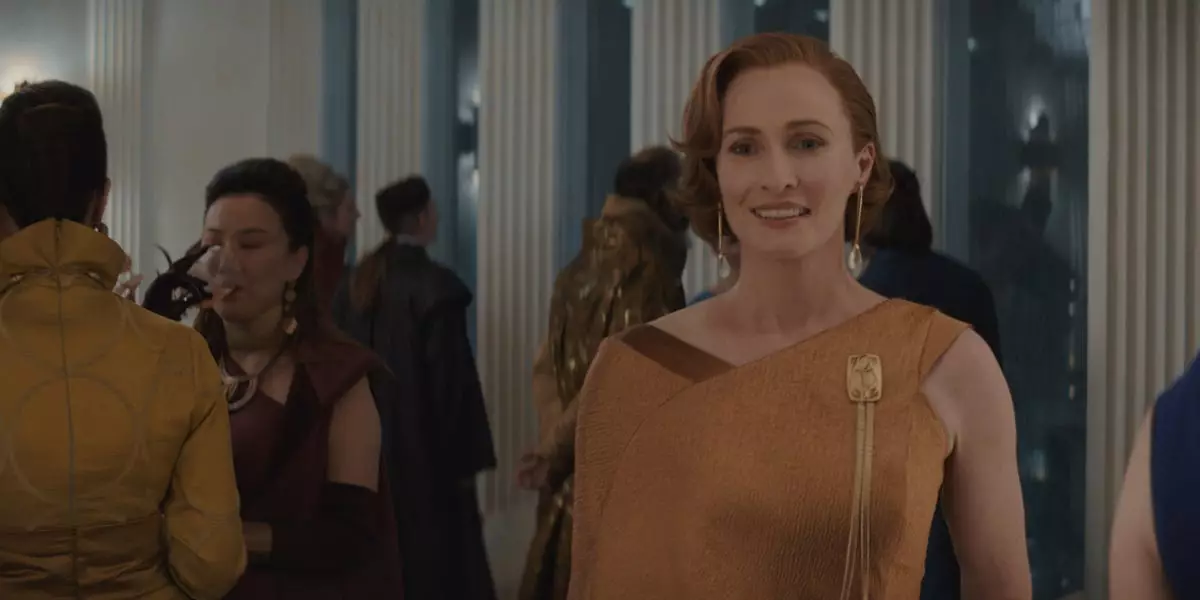The return of “Andor” for its second and final season on Disney+ is a momentous occasion for fans of storytelling that challenges the conventional narrative associated with the Star Wars franchise. While plenty of animated lightsaber battles and grand space operas focus on heroism, “Andor” dares to plunge into the trenches of revolutionary struggle. Set against the backdrop of galactic tyranny, showrunner Tony Gilroy deftly crafts a narrative that is less about the spectacle of rebellion and more about the raw, human machinations that ignite change.
In many ways, Gilroy’s approach highlights the gritty texture of revolution. He has described “Andor” as a story about “the making of a revolutionary,” underscoring that creating change is often a murky path rife with complex moral decisions. The show is not merely a retelling of a rebellion against an evil empire. Instead, it presents a tapestry of how revolutions are concocted in dark corners, funded through questionable means, and powered by the desperation of everyday people. As Gilroy succinctly points out, the preoccupation with how resources are allocated and the ethical implications behind them is a largely neglected aspect of revolutionary discourse.
Realism Amidst the Stars
One of the elements that sets “Andor” apart from typical sci-fi fare is its commitment to human experiences. Diego Luna, who plays Cassian Andor, encapsulates the essence of the series when he mentions the continuous evolution of the script; it resembles “a living organism.” This constant transformation not only keeps viewers engaged, but it also weaves in layers of complexity that resonate with the intricacies of human emotion and conflict.
Genevieve O’Reilly, who portrays Mon Mothma, further elevates this sentiment, emphasizing how the series manages to maintain a sense of groundedness amidst its expansive setting. O’Reilly compares her experience on “Andor” to being in “Downton Abbey in Star Wars,” revealing how the storytelling evokes themes of family, intimacy, and inherent danger. This does not mean that the series loses itself in its human focus; rather, it enriches the overarching narrative by making it relatable and palpably intimate.
A Narrative for Everyone
One of the bold assertions that Gilroy makes is his desire for “Andor” to be accessible to a broad audience. He stresses that newcomers to the Star Wars universe need not feel overwhelmed by its lore. This inclusivity is vital. While the show offers a nuanced narrative that caters to die-hard fans, it also remains approachable for those unfamiliar with earlier installments. By doing so, “Andor” opens the doors to a larger audience, inviting them to engage with themes of resistance and courage rather than being alienated by verbose backstory and intricate mythologies.
The second season is poised to build upon the foundation of its critically acclaimed predecessor, employing a structure that unfolds through four significant time jumps. Each arc, consisting of three episodes, captures pivotal moments leading up to “Rogue One,” culminating in a meticulously crafted story arc that offers both emotional depth and narrative urgency. Through these shifts, viewers can anticipate heightened stakes and profound character development, as each segment represents a crucial window into the rise of unified resistance against oppression.
A Weekly Anthem of Collectivism
The staggered release of episodes, with three made available at a time, captures a bygone era of weekly television anticipation. This format serves not just to build suspense, but also to cultivate a conversation among viewers—a shared experience reminiscent of communal viewing in decades past. The emotional beats interspersed within “Andor’s” narrative beckon audience deliberation on the complexities and sacrifices inherent in fighting against domination.
In this age of binge-watching, “Andor” emerges as a refreshing reminder that storytelling, especially one as multifaceted as this, thrives on collective engagement. As new episodes debut weekly, audiences are afforded the time to digest, reflect, and discuss not only the implications of the plot but also the philosophical questions it raises about resistance, accountability, and what it means to fight for a cause.
Through its incisive exploration of humanity amidst the chaos of rebellion, “Andor” holds up a mirror to our world. It challenges us to ponder the costs of revolution and the impossible choices made in the name of change. Amidst the epic battles and interstellar intrigue, it is the human spirit—flawed, resolute, and relentlessly striving for hope—that takes center stage.

